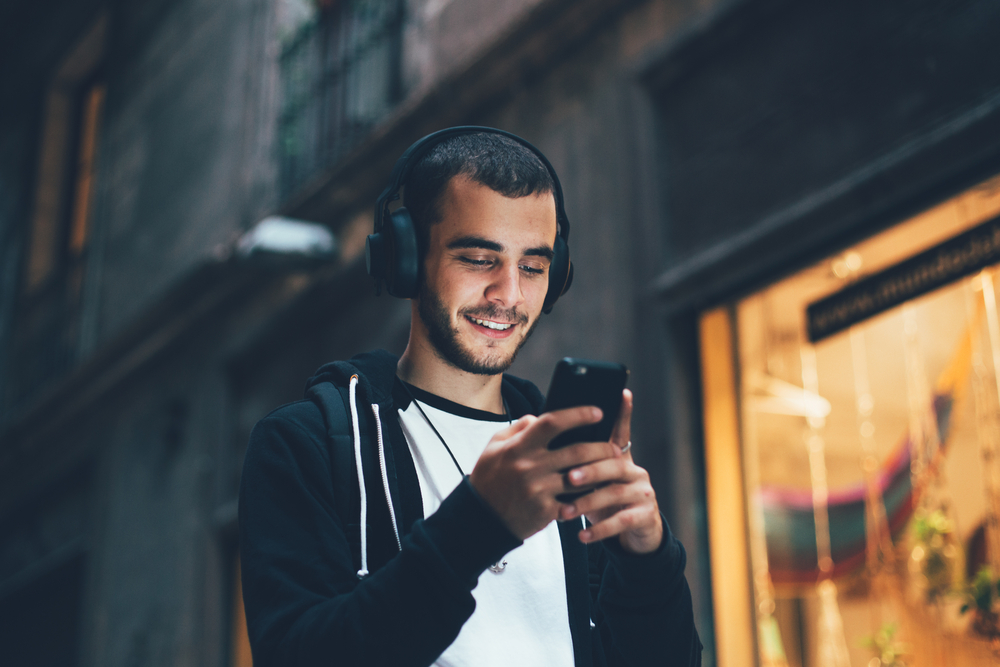James is a music aficionado who has excelled in the art of integrating his favored tunes into his day-to-day life, effortlessly shifting from Spotify at his workdesk to Pandora during his runs, and meticulously putting together playlists to beautifully complement every activity, whether he’s pumping iron, whipping up a meal, or immersed in a gaming session. He’s rarely seen without his headphones, which have become an essential part of his daily life, transforming every moment into a personalized audio adventure. James takes comfort and joy in the engaging world of music, but the very source of his happiness may be harming his cherished ability to hear without him recognizing it.
There are safe ways to appreciate music and ways that are more hazardous to your hearing health. Regrettably, many of us tend to gravitate towards the latter.
How does prolonged music exposure lead to hearing loss?
Over time, loud noises can bring about degeneration of your ability to hear. We’re used to regarding hearing loss as a problem associated with aging, but an increasing amount of research reveals that it’s really the build-up of noise-related damage that is the issue here and not anything intrinsic in the process of aging.
Younger people are more prone to noise-induced harm as their ears are still in the developmental phase. And yet, young adults are more likely to be dismissive of the permanent dangers of high volume. So there’s an epidemic of younger individuals with hearing loss, thanks, in part, to widespread high-volume headphone usage.
Can one listen to music without any safety issues?
Unlimited max volume is clearly the” dangerous” way to listen to music. But there is a safe(er) way to enjoy your tunes, and it normally includes turning the volume down. The general guidelines for safe volumes are:
- Adults should restrict their device listening time to 40 hours or less and make sure the volume remains below 80 dB.
- For Teens and Minors: You can still listen for 40 hours, but keep the volume level below 75 dB.
Breaking it down, you’re dealing with approximately 5 hours and 40 minutes of listening every day. That might seem like a lot, but it can go by fairly quickly. Even still, most people have a pretty strong concept of keeping track of time– it’s something we’re taught to do successfully from a very young age.
The more challenging facet involves keeping track of your sound level. Technologies like smartphones, computers, and TVs typically do not display volume in decibels. Its value is established utilizing a rather subjective or relative scale. Maybe it’s 1-100. But maybe it’s 1-16. You might be unaware of the maximum volume range of your device or how near you are to reaching that limit.
Tips for efficiently keeping track of your music volume
Several free noise monitoring apps can be downloaded for both iPhone and Android devices to address this problem. These apps provide instant feedback on surrounding noise levels, enabling users to tweak their listening volume to safe levels.
Because of this, many audiologists recommend utilizing one of the numerous noise level tracking applications available at no cost. These extensively accessible apps, compatible with both iOS and Android platforms, supply instant sound-level feedback on the background noise around you. In this manner, you can monitor the decibel level of your music as it plays and make adjustments accordingly.
A volume comparison: garbage disposals and more
As example, 80 dB is roughly comparable to the noise produced by a typical garbage disposal or dishwasher– audible, yet not overly loud. Identifying this volume level is important because it marks the point at which hearing loss becomes a real and substantial concern.
So, being extra vigilant when surpassing this decibel limit is important. Consider reducing your exposure to exceedingly loud music by listening to certain songs at the highest volume instead of listening to entire albums.
Prolonged exposure to loud sounds can lead to hearing problems, including ringing in the ears, or tinnitus, and potentially irreversible damage to one’s hearing. By remaining mindful of when our ears venture into the danger zone, we enable ourselves to make informed decisions, with the ultimate goal of promoting safer listening practices.
Book an appointment for a hearing assessment
To further prioritize your auditory health, consider reaching out to a hearing specialist to schedule a comprehensive hearing test. Proactive steps like regular screenings can identify any potential issues early on, enabling timely interventions and personalized recommendations to protect your vital sense of hearing.

